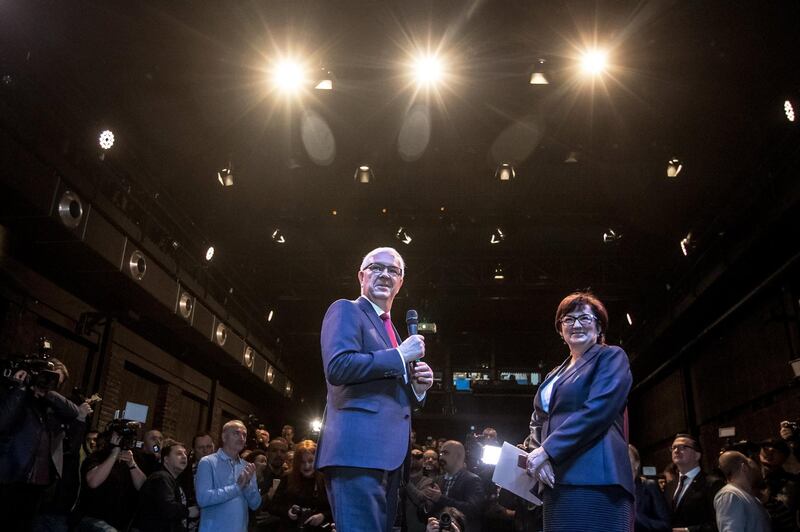Czechs will decide in a run-off presidential election whether pro-Russian incumbent Milos Zeman keeps his post for five more years or is ousted by a pro-European Union professor who’s won endorsements from candidates who tumbled out in the first round.
Mr Zeman, a veteran politician who supports Russian leader Vladimir Putin and was an early backer of US president Donald Trump, won the initial stage of balloting on Friday and Saturday with 39 per cent. He will face Jiri Drahos, a 68-year-old former head of the Czech Academy of Sciences in a head-to-head contest on January 26 and 27. Mr Drahos won 27 per cent, far ahead of the next challenger.
The election has become a public reckoning of Mr Zeman’s approach after he used what he calls a “creative interpretation” of the constitution to carve out a stronger role for the presidency. While the post’s powers are limited and most executive policies lie with the government, the head of state has an influential voice in public debate and appoints prime ministers and central bankers.
“Zeman is seen as a politician who took the country on a pro-Russian course, who’s dragging the Czech Republic towards the east,” said Jiri Pehe, director of New York University in Prague. “That’s one of the main themes of this election. Drahos has clearly positioned himself as a pro-western, pro-European candidate.”
Mr Zeman has portrayed himself as an advocate of poorer Czechs by opposing urban elites, who he calls a “Prague coffee-house society” detached from the lives of ordinary people. His critics say he has polarised the country with calls to abolish EU sanctions against Russia, verbal attacks against migrants and intellectuals and derogatory remarks about topics ranging from environmentalism to human rights.
Weeks after the UK’s decision to leave the EU, he called for a similar referendum in the Czech Republic. The president said he’d vote to stay, but the proposal rang alarm bells in one of the most euro-sceptic members of the bloc. Mr Drahos has made “the solid anchoring of the Czech Republic in Europe, our partnership with Nato, and the importance of our ties within the Euro-Atlantic space” top priorities.
While the Czech Republic is the EU’s richest post-communist member by economic output per capita – and boasts the bloc’s lowest unemployment – Mr Zeman has tapped into anti-immigrant sentiment with rhetoric resembling that of populist politicians who made gains in elections in Europe last year.
The run-off’s outcome depends on whether Mr Drahos cashes in on endorsements from four candidates who won a combined 31 percent in the first round. A lot will also depend on TV debates, which may give Mr Zeman – a skillful orator – a chance to capitalise on a Drahos campaign that’s avoided controversy.
Mr Drahos “will have to show voters that he’s more than just a nice guy,” said Stanislav Balik, a political scientist at Masaryk University in Brno, the nation’s second-largest city.
The decision on who resides at the Prague castle may also play a role in building a government after inconclusive parliamentary elections last year. Mr Zeman appointed his ally in opposing the EU’s refugee policy, billionaire Andrej Babis, as prime minister, even though his single-party cabinet doesn’t have a majority.
The president pledged to give Mr Babis another mandate if, as widely expected, his first administration fails to win approval from lawmakers this week. He has endorsed Mr Zeman but warned he needs to declare that the Czech Republic doesn’t have an eastern orientation if he wants to win.
“He has got a label that he’s pro-Russia, pro-China, but I think that’s nonsense,” Mr Babis said in an interview on TV Prima on Sunday. “He should explain that these contacts at the highest levels, with the Chinese president, with president Putin, are in the interest of our entrepreneurs.”






